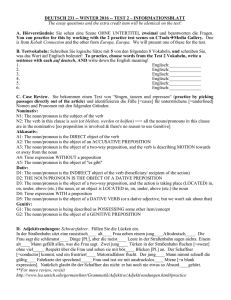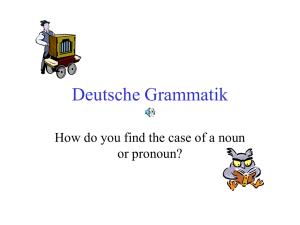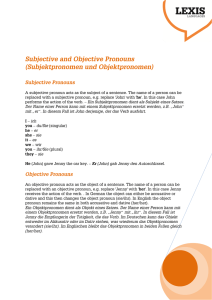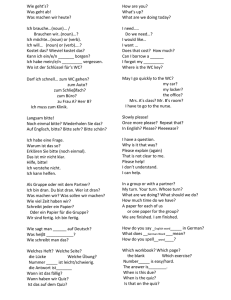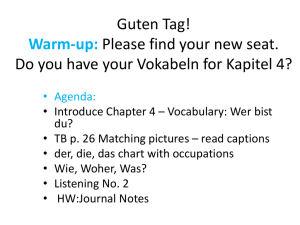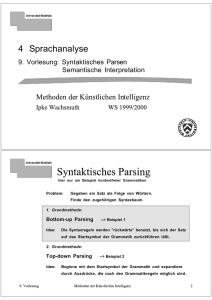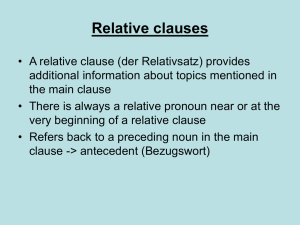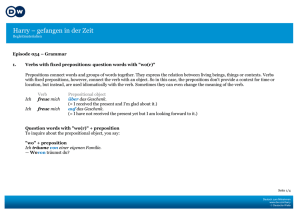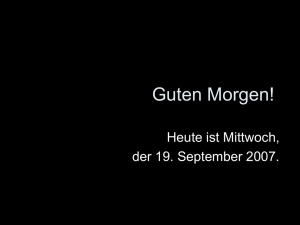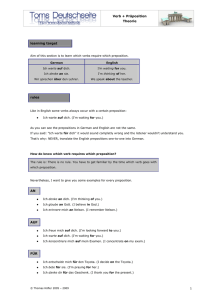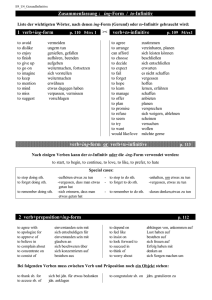to see all the quiz question formats
Werbung
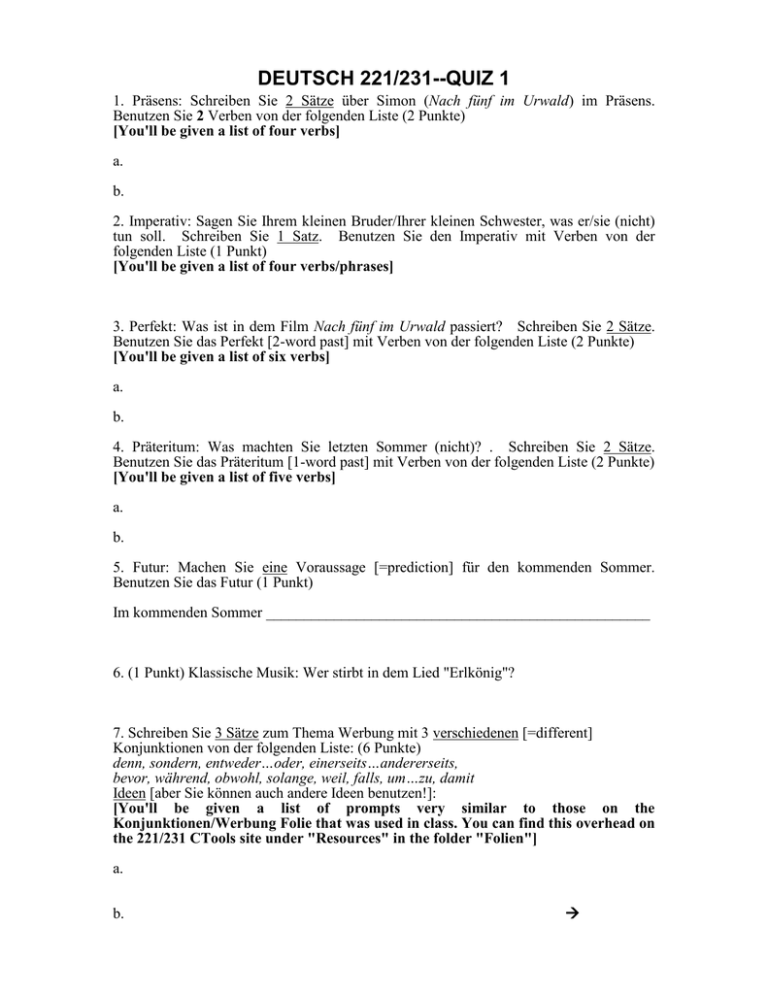
DEUTSCH 221/231--QUIZ 1 1. Präsens: Schreiben Sie 2 Sätze über Simon (Nach fünf im Urwald) im Präsens. Benutzen Sie 2 Verben von der folgenden Liste (2 Punkte) [You'll be given a list of four verbs] a. b. 2. Imperativ: Sagen Sie Ihrem kleinen Bruder/Ihrer kleinen Schwester, was er/sie (nicht) tun soll. Schreiben Sie 1 Satz. Benutzen Sie den Imperativ mit Verben von der folgenden Liste (1 Punkt) [You'll be given a list of four verbs/phrases] 3. Perfekt: Was ist in dem Film Nach fünf im Urwald passiert? Schreiben Sie 2 Sätze. Benutzen Sie das Perfekt [2-word past] mit Verben von der folgenden Liste (2 Punkte) [You'll be given a list of six verbs] a. b. 4. Präteritum: Was machten Sie letzten Sommer (nicht)? . Schreiben Sie 2 Sätze. Benutzen Sie das Präteritum [1-word past] mit Verben von der folgenden Liste (2 Punkte) [You'll be given a list of five verbs] a. b. 5. Futur: Machen Sie eine Voraussage [=prediction] für den kommenden Sommer. Benutzen Sie das Futur (1 Punkt) Im kommenden Sommer ___________________________________________________ 6. (1 Punkt) Klassische Musik: Wer stirbt in dem Lied "Erlkönig"? 7. Schreiben Sie 3 Sätze zum Thema Werbung mit 3 verschiedenen [=different] Konjunktionen von der folgenden Liste: (6 Punkte) denn, sondern, entweder…oder, einerseits…andererseits, bevor, während, obwohl, solange, weil, falls, um…zu, damit Ideen [aber Sie können auch andere Ideen benutzen!]: [You'll be given a list of prompts very similar to those on the Konjunktionen/Werbung Folie that was used in class. You can find this overhead on the 221/231 CTools site under "Resources" in the folder "Folien"] a. b. c. 8. [You'll be given five excerpts from German song lyrics with a noun underlined for which you need to choose the correct answer from the above list, e.g. "N1" or "D5" etc.] (5 Punkte) For the underlined nouns/pronouns in the following song lyrics, give the case of the noun/pronoun, AND the reason why it is in this case. To help you, here is a list of the four cases and the possible reasons you could give for each. Just use the codes to give your response! Nominative: N1: The noun/pronoun is the subject of the verb N2: The verb in this clause is "sein" (or "bleiben" or "werden") ==> all the nouns/pronouns in this clause are in the nominative [if no preposition is involved and there's no reason to use the Genitive] Accusative: A1: The noun/pronoun is the DIRECT object of the verb A2: The noun/pronoun is the object of an ACCUSATIVE PREPOSITION A3: The noun/pronoun is the object of a two-way preposition, and the verb is describing MOTION towards or away from the noun A4: Time expression WITHOUT a preposition A5: The noun/pronoun is the object of "es gibt" Dative: D1: The noun/pronoun is the INDIRECT object of the verb (beneficiary or recipient of the action) D2: THE NOUN/PRONOUN IS THE OBJECT OF A DATIVE PREPOSITION D3: The noun/pronoun is the object of a two-way preposition, and the action is taking place (LOCATED) in, on, under, above (etc.) the noun, or an object is LOCATED in, on, under, above (etc.) the noun D4: Time expression WITH a preposition D5: The noun/pronoun is the object of a DATIVE VERB (or a dative adjective, but we won't ask about that) Genitive: G1: The noun/pronoun is being described as POSSESSING some other item/concept G2: The noun/pronoun is the object of a genitive preposition
